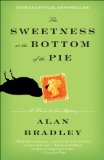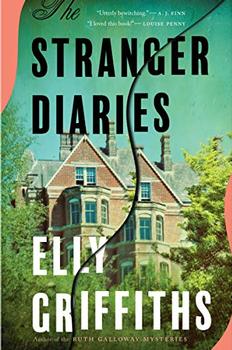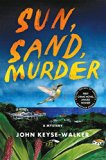Summary | Excerpt | Reading Guide | Reviews | Beyond the book | Read-Alikes | Genres & Themes | Author Bio

Flavia de Luce, an eleven-year-old British sleuth who very recently entered the literary scene, already has a fan club! I'm joining the quickly-growing group of readers who have fallen in love with this winning heroine, penned by septuagenarian debut novelist Alan Bradley. After following Flavia through her first crime-solving adventure, with five more to come, I say, "Sign me up and bring them on!"
What makes Flavia such a fun heroine? Through her first-person narration we enjoy her illuminating thought processes - which can take us from the brilliance of Sherlock Holmes to the schemes typical of a young girl seeking revenge on two older sisters who often belittle and torture her. I found myself saying, "You go girl!" as Flavia passionately concocts a poison in her chemistry lab - not fatal of course, just enough to mix into the vain sister's lipstick, causing her lips to swell. How sweet is that justice?
What's not to like about a girl who admits, "Sometimes I fabricate things". Or a girl whose mother has died, who loves her grieving father passionately, whose best friend is the family gardener and who darts through the countryside solving crimes on a bicycle named Gladys.
The Sweetness at the Bottom of the Pie contains all the elements for an enjoyable classic whodunit. A small English village, a Victorian country house with a deserted chemistry lab, a dead body (of course) in the cucumber patch, a cook whose custard pies no one likes, an Inspector who tries to solve the crime in spite of Flavia's meddling. But what's a girl to do when her father is charged with the murder she knows he's incapable of committing? Clues and red herrings abound, and one can hardly keep up with Flavia's energy and curiosity as she pursues each one.
I recommend this book not only to fans of whodunits for the sheer joy of following clues and plot twists, but to aspiring writers. Alan Bradley creates images as fresh and unique as Flavia's personality:
Dogger began to twitch like an experimental frog whose spinal cord had been hooked up to a galvanic battery.
I hated Mrs. Mullett's seed biscuits the way Saint Paul hated sin.
His voice was as heavy as the lead weights on a deep-sea diver's boots.
There is one image in particular that I will not soon forget, a stellar example of "show, don't tell"; in less than twenty words Mr Bradley paints a rare portrait of grief. I dare you to read page forty-four and not experience the depth of Father's sorrow over the loss of his wife.
And if you ever feel guilt in reading something as lightweight as a frivolous whodunit, you are absolved in reading this book. It is abundant with references to literature, theatre, history and chemistry, not to mention the fascinating history of Great Britain's Penny Black (see sidebar). Father's passion for stamp collecting equals Flavia's for chemistry - "Father loved stamps more dearly than he loved his offspring."
One of the first reviews of The Sweetness at the Bottom of the Pie says Flavia de Luce is Harriet the Spy for grown-ups; I also see a few parallels to Nancy Drew. Both sleuths are motherless, adore their father and solve crimes through a relentless search of the clues, be it in a convertible or on a bicycle.
This reader hopes Flavia doesn't grow up too quickly. I want to spend more time with her, pursuing other crimes with her unique blend of passion and curiosity. I think readers will also enjoy returning to the entire cast of characters and English setting Bradley has created in this series.
Coming Soon
The Weed That Strings the Hangman's Bag (USA: March 2010. UK: April 2010)
![]() This review was originally published in The BookBrowse Review in May 2009, and has been updated for the
January 2010 edition.
Click here to go to this issue.
This review was originally published in The BookBrowse Review in May 2009, and has been updated for the
January 2010 edition.
Click here to go to this issue.

If you liked The Sweetness at the Bottom of the Pie, try these:

by Elly Griffiths
Published 2019
Death lies between the lines when the events of a dark story start coming true in this haunting modern gothic mystery, perfect for fans of Magpie Murders and The Lake House.

by John Keyse-Walker
Published 2016
Written with a wry, witty narrative voice and a plot full of twists and turns, John Keyse-Walker's Minotaur Books/Mystery Writers of America First Crime Novel Award-winning debut is a pure delight.
Your guide toexceptional books
BookBrowse seeks out and recommends the best in contemporary fiction and nonfiction—books that not only engage and entertain but also deepen our understanding of ourselves and the world around us.